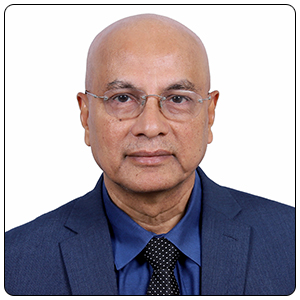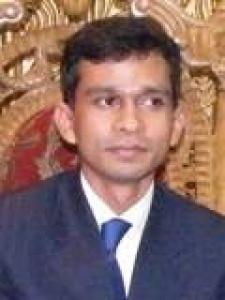2013-10-06 21:08:47

Endowment: Plantation for the future of Bangladesh
We, bioscientists of Bangladesh origin living in Bangladesh and abroad, are aware that Genetic Engineer Dr Maqsudul Alam and his team in Bangladesh have sequenced the genome of two varieties of jute and a fungal pathogen infecting jute. These are great, inspiring news. How this milestone achievement was achieved? If someone looks into the background of these achievements, it becomes apparent that the generous research fund provided by the Government of Bangladesh was the key factor. Research papers published in high impact journals by scientists from ICDDR, B, Dhaka University and other educational and research institutes are from research projects funded by national and international research grants. Taken together, these information suggests that we, the Bangladeshi bioscientists have the talent, idea, technical expertise to carry out world-class research, publish in leading journals and make our mark in the global science base. The only missing piece of the puzzle is the availability of a research fund. If research fund is made available, our talented young and experienced senior scientists can carry out world-class research; generate intellectual properties which will be our scientific assets as our beloved motherland Bangladesh sheds the stigma of a least developed country and makes its mark on a global stage as a leader in many socio-economic arenas.
The jute genome project was funded by the government of Bangladesh. Realistically, it is not possible for the government to fund many such projects as it has other priorities, In fact, availability such a large fund (80 crores) for jute genome project is unprecedented in Bangladesh. There are 17 public Universities, many medical colleges and research institutes in Bangladesh. Most of the Govt money made available to these institutions go for the salary of the faculty members and stuff and maintaining the teaching laboratories. So, we cannot depend on government hand downs to develop advanced research labs and carry out research. So, what should be done? The endowment fund is the solution. We should not depend on the government to provide us with fund. We should try to generate our own fund that can be used for research and development.
The endowment fund is an investment fund set up by an educational institute. Donation made by the alumni and friends of that institute is used to set up the endowment fund. Such donations are usually are tax-deductible for donors to encourage donation. Withdrawals from the profit generated from the invested capital are used for research and development, for ongoing operations or other specified purposes. Endowment funds are often used by universities, hospitals, religious institutions, nonprofits and philanthropic organizations. In addition to a general endowment fund, each university may also control a number of restricted endowments that are intended to fund specific areas within the institution. The most common examples are endowed professorships, endowed scholarships or fellowships.
Operation of the endowment fund
The main theme of the endowment fund is the capital of the fund is always kept invested in perpetuity (never spent) and part of the profit generated from investment is used for research and development and the rest of the profit is reinvested with capital so that the capital continues to grow with time. Over the years, growth of the endowment through investment return enables the University to provide scholarships, fellowships, study loan to the students, build faculty of excellence, launch new programs and research efforts, and support a wide range of important needs. Each endowment fund is based on the concept that excellent programs require substantial, consistent, and permanent funding. Survey of use of endowment fund by different Universities and organizations reveal that around 5 % of the value of the fund is used each year.
In many countries, the endowment is often integral to the financial health of educational institutions. Alumni and friends of the institution contribute capital to the endowment. The endowment funding culture is strong in the United States and Canada. In the USA more than 60 Universities have endowment fund of more than one billion dollars; Harvard University has the largest endowment fund of 32 billion dollars (2012 figure). With such a huge endowment fund, Harvard is attracting brightest students and faculty members and maintaining its status as the best University in the world. Harvard initiated its endowment with just $10,000 dollars more than 200 years ago; with time it has grown through investment into a huge fund with continued contribution from its alumni and friends. For a University president in the USA, one of the major tasks is to increase the endowment fund of that University. Endowment funds have also been created to support secondary and elementary school districts in several states in the United States.
History of Endowment Fund
Roman emperor Marcus Aurelius created one endowed chair for each of the major schools of philosophy: Platonism, Aristotelianism, Stoicism, and Epicureanism in Athens in AD 176. This practice was followed in other major cities of the Empire similar endowments were set up in some other major cities of the Empire. The practice of creation of endowment fund to promote education was adapted to the modern university system beginning in England in 1502, when Lady Margaret Beaufort, Countess of Richmond and grandmother to King Henry VIII, created the first endowed chairs in divinity at the universities of Oxford and Cambridge. Later King Henry VIII established the endowed Professorships at both universities in five subjects: Divinity, Civil law, Hebrew, Greek, and Physics. Private individuals soon adopted the practice of endowing professorships. Isaac Newton held the Lucasian Chair of Mathematics at Cambridge in 1669, which is currently held by the famous physicist Stephen Hawking.
Situation in Bangladesh
The concept of an endowment fund is relatively new in Bangladesh and largely unexplored and unpracticed. Department of Microbiology is one of the youngest Departments in the faculty of Biological Sciences at the University of Dhaka. Microbiology Department has an alumni association entitled ‘Dhaka University Microbiology Alumni Association’ (DUMAA). A few years ago (during 2007-2008), DUMAA initiated the creation of an endowment fund for the Department of Microbiology, University of Dhaka. With the participation of the Department of Microbiology and generous contribution from the alumni of the Department scattered all over the world, DUMAA thus created the first department based endowment fund in Bangladesh. It has a board of trustee headed by the Chairman of the Department of Microbiology and current fund balance is approximately 30 lakhs BDT. The fund is fixed deposited and no more than 50 % of the profit generated each year will be used for research, development, scholarships, study loan and the like. The other 50 % will be reinvested with the capital so that it will continue to grow without further injection fund. However, a systematic approach is being adopted to reach out to all members of the alumni to encourage them to contribute to the fund. In addition, fundraising events are also planned to further boost the fund.
Our experience in creating the endowment fund at the Department of Microbiology, University of Dhaka shows that the concept of the endowment was well received among the alumni. They enthusiastically donated for the fund; they saw it as an opportunity to give their alma mater from which they receive education virtually at no cost.
The faculty of Biological Sciences, University of Dhaka created an endowment fund with 10 lakh BDT under the leadership of the Dean, Professor Dr Imdadul Huq in 2013. Based upon the concept of the endowment fund, the capital of the fund thus created will always remain invested and part of the profit generated will be used to assist the teachers of the faculty to attend conferences, pay for publication charge in high impact journals and the like; while the other half the profit generated will be reinvested with the capital for its sustained growth.
Dhaka University Alumni Association (DUAA) held it’s diamond jubilee (65 years) celebration in December 2011. DUAA president in a TV interview stressed upon the need to the created endowment fund. It is anticipated that DUAA will give it a top priority and launch a vigorous drive to create an endowment fund without further delay. If the Department of Microbiology can raise 30 lakh taka for its endowment fund, Dhaka University can raise 300 crore taka easily in a short period of time if it initiates a vigorous and aggressive drive for such an endowment fund.
The enormous potential of the endowment fund is largely unexplored in Bangladesh. It is an easily doable process, Only initiative is needed to be taken to motivate the alumni. It has a huge, untapped potential; it needs to be initiated in all Departments, all Faculties and all Universities of Bangladesh. Alumni of Dhaka University, for example, are leading Bangladesh in business, politics, entrepreneurship, education, research, civil administration, industry, commerce, finance, and banking. Every year thousands of new alumni are being produced by Dhaka University. Thousands of alumni are living in different countries of the world; many are doing excellent in his / her area of expertise. If they are encouraged to contribute for an endowment fund, a huge endowment fund for research and development can be created in a short period of time and the research in DU will promptly leap into a new frontier. Government of Bangladesh alone cannot do everything; it cannot supply enough research funds to fully utilize the potential of well-trained scientists. In fact, the Government of even the rich countries cannot provide enough funds for research; this is why many public Universities in the USA have their own endowment funds to support its research and development. So we cannot sit idle and wait for Government fund to do research, we have to generate our own fund.
Creation of endowment fund in Bangladesh needs to be seen as a process involving the people in an effort which is vital to our dream of being a self-reliant, proud nation. Drive to create endowment fund should be seen as a national building effort. People of Bangladesh are patriotic; if they see the real power and potential of an endowment fund, they will come in millions and happily contribute for the fund. Biotechnology will tremendously influence our lives in many ways in the coming years. Millions and millions of dollars will be needed to fund research and development in Biotechnology if we want to be in pace with rapidly changing Biotech World. Only creation of endowment fund will enable us to maintain the same speed as the rest of the world and achieve our dream.


